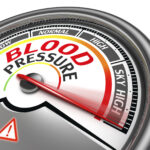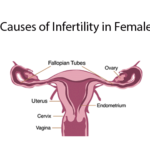Here are the Causes of Hypertension in Young Adults
This article is about the causes of hypertension in young adults and it is important to take note of the underlying causes. Hypertension, commonly known as high blood pressure, has traditionally been associated with older age groups.
However, an alarming trend has emerged in recent years: an increasing number of young adults are being diagnosed with hypertension. This phenomenon raises concerns about the long-term health implications for this generation.
Understanding the causes of hypertension in young adults is crucial in order to develop effective prevention strategies and promote healthier lifestyles.
Symptoms of Hypertension in Young Adults:
Hypertension is often referred to as a silent killer because it may not present noticeable symptoms in its early stages.
However, some young adults may experience the following symptoms, particularly if their blood pressure is severely elevated:
Headaches: Recurring or persistent headaches, often described as pulsating or throbbing, can be a symptom of hypertension.
Fatigue and Dizziness: Feeling excessively tired or experiencing frequent dizziness or lightheadedness may indicate high blood pressure levels.
Shortness of Breath: Difficulty breathing or shortness of breath, especially during physical exertion, can be a sign of hypertension.
Chest Pain: Although chest pain is more commonly associated with heart-related conditions, it can occasionally occur in young adults with severe hypertension.
Vision Changes: Blurred vision or visual disturbances may occur in some individuals with high blood pressure.

Hypertension in young adults can have serious health consequences if left untreated. It is important to recognize the causes and symptoms of hypertension to take proactive measures for prevention and management.
Lifestyle modifications, such as regular exercise, healthy eating, stress management, avoiding tobacco and substance abuse, maintaining a healthy weight, and prioritizing sufficient sleep, can significantly reduce the risk of hypertension.
Regular blood pressure monitoring and seeking medical attention when symptoms arise are crucial for early detection and intervention, ensuring the long-term health and well-being of young adults.
Causes of Hypertension In Young Adult
In this article, we will delve into the multifaceted causes of hypertension in young adults, shedding light on various factors that contribute to this worrisome health issue.
Sedentary Lifestyle
One of the significant causes of hypertension in young adults is a sedentary lifestyle characterized by a lack of physical activity. Engaging in regular exercise helps maintain a healthy weight, reduces stress levels, and promotes cardiovascular health.
However, with the advent of technology and increasingly sedentary occupations, young adults are spending excessive amounts of time sitting, whether it be in front of a computer screen or on the couch. This lack of physical activity can lead to weight gain, increased blood pressure, and ultimately hypertension.
Unhealthy Dietary Habits
Poor eating habits play a pivotal role in the development of hypertension among young adults. The consumption of processed foods, high in sodium, unhealthy fats, and added sugars, has skyrocketed in recent years.
Such diets, coupled with the decline in the consumption of fresh fruits, vegetables, and whole grains, contribute to obesity, insulin resistance, and elevated blood pressure. Additionally, excessive alcohol intake among young adults can also lead to hypertension.
Stress and Mental Health
The modern world presents young adults with various stressors, such as academic pressures, career uncertainties, and financial burdens. Chronic stress can trigger hormonal changes and increase blood pressure.
Moreover, unhealthy coping mechanisms like overeating, excessive alcohol consumption, and tobacco use are common among stressed individuals, further exacerbating the risk of hypertension. Mental health conditions like anxiety and depression have also been associated with hypertension in young adults.
Genetics and Family History
While lifestyle choices play a significant role in the development of hypertension, genetic factors cannot be overlooked. Hypertension tends to run in families, suggesting a hereditary component. Certain genetic variations can affect blood pressure regulation, making some individuals more prone to hypertension.
Therefore, young adults with a family history of hypertension should be particularly vigilant about maintaining a healthy lifestyle and regularly monitoring their blood pressure.
Obesity and Body Mass Index (BMI)
Obesity has reached epidemic proportions worldwide, and young adults are not exempt from this trend. Excess body weight, particularly abdominal obesity, increases the risk of developing hypertension. Adipose tissue secretes various hormones and inflammatory substances that disrupt the normal functioning of blood vessels, leading to elevated blood pressure.
Calculating the Body Mass Index (BMI) helps assess the risk of hypertension and provides guidance for weight management.
Smoking and Substance Abuse
Tobacco use, both smoking and smokeless forms, significantly contribute to hypertension in young adults. Nicotine and other toxic substances in tobacco products cause blood vessels to constrict, increasing blood pressure.
Moreover, smoking accelerates the development of atherosclerosis, further compromising cardiovascular health. Additionally, substance abuse, including illicit drugs and excessive caffeine consumption, can also raise blood pressure levels.
Sleep Disorders
Inadequate sleep and sleep disorders have been increasingly recognized as risk factors for hypertension. Young adults often struggle with sleep deprivation due to academic and professional demands, as well as social activities.
Chronic sleep deprivation disrupts the body’s natural circadian rhythm and can lead to hormonal imbalances, increased sympathetic nervous system activity, and higher blood pressure.
Addressing Hypertension
To effectively address the rising prevalence of hypertension in young adults, a comprehensive approach is required. Here are some key strategies to promote prevention, early detection, and management of hypertension:
Education and Awareness
Increasing public awareness about the risks, causes, and consequences of hypertension in young adults is crucial. Educational campaigns, both online and offline, can provide information on healthy lifestyle choices, the importance of regular blood pressure monitoring, and the potential consequences of uncontrolled hypertension.
Healthcare professionals, schools, workplaces, and community organizations can play a significant role in promoting awareness.
Healthy Lifestyle Promotion
Encouraging young adults to adopt and maintain healthy lifestyles is paramount. Promote regular physical activity, such as exercise, sports, and active hobbies, to combat sedentary behaviors.
Emphasize the importance of a balanced diet rich in fruits, vegetables, whole grains, and lean proteins, while limiting the consumption of processed foods, sodium, unhealthy fats, and added sugars. Stress management techniques, such as mindfulness, meditation, and counseling, can help young adults cope with stress effectively.
Regular Blood Pressure Monitoring
Routine blood pressure monitoring should be encouraged among young adults, especially those with a family history of hypertension or other risk factors. Self-monitoring devices, available in pharmacies or online, can empower individuals to track their blood pressure at home.
Healthcare providers should emphasize the significance of regular check-ups and blood pressure measurements during routine medical visits.
Screening for Associated Conditions
Young adults with hypertension should undergo appropriate screening for associated conditions, such as diabetes, dyslipidemia, and kidney disease. Identifying and managing these conditions can help prevent further complications and improve overall cardiovascular health.
Multidisciplinary Approach
Collaboration between healthcare professionals, including primary care physicians, cardiologists, dietitians, and mental health experts, is essential for comprehensive management of hypertension in young adults. A multidisciplinary approach ensures holistic care, addressing both physical and mental health aspects.
Behavioral Interventions
Implementing behavioral interventions can assist young adults in adopting and maintaining healthier habits. These interventions can include personalized counseling sessions, support groups, and health coaching to promote sustained lifestyle changes.
Policy and Environmental Changes
Creating an environment that supports healthy choices is crucial. Policies that encourage physical activity in schools and workplaces, promote access to nutritious foods, and regulate tobacco and alcohol use can contribute to the prevention and management of hypertension. Collaboration with policymakers, community leaders, and advocacy groups can help drive these changes.
Research and Innovation
Continued research into the causes, risk factors, and management of hypertension in young adults is essential. This research can lead to the development of innovative approaches, personalized interventions, and targeted therapies specific to this population.
Addressing the rising incidence of hypertension in young adults requires a multifaceted and collaborative effort. By promoting education, healthy lifestyles, regular monitoring, and proactive healthcare, we can empower young adults to take charge of their cardiovascular health.
With a comprehensive approach that spans individual choices, societal support, and medical interventions, we can pave the way for a healthier future, reducing the burden of hypertension in the younger generation.
Conclusion
The rising prevalence of hypertension among young adults demands immediate attention. Multiple interconnected factors contribute to the development of hypertension in this population, including sedentary lifestyles, unhealthy dietary habits, stress, genetic predisposition, obesity, tobacco and substance use, and sleep disorders.
A comprehensive approach is necessary, combining education, lifestyle modifications, and regular health check-ups, to curb the rising tide of hypertension among young adults.
Empowering this generation with the knowledge and tools to make healthier choices will pave the way for a brighter, healthier future.
Foods to avoid with Kidney Failure

A graduate of Computer Science and Information Management Technology. Diploma – Caregiving, Certificates – Dementia and Diabetes Awareness and Management. A researcher, blogger, songwriter, singer and acoustic guitarist. Born in an environment where natural talents such as healing are imparted at our natural birth. This natural talents of healing is the result of our genetic inheritance and the training from family environment.














